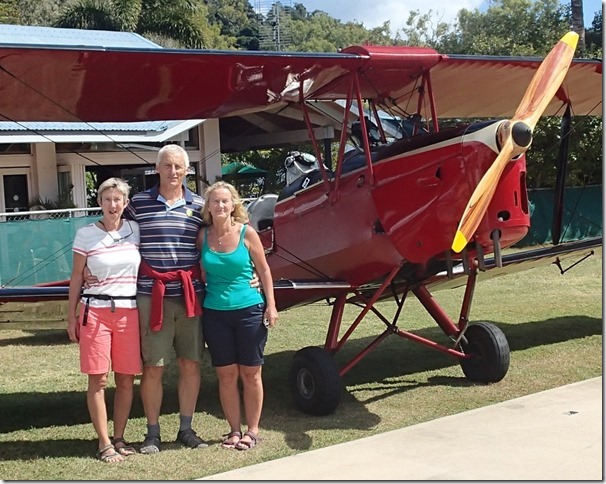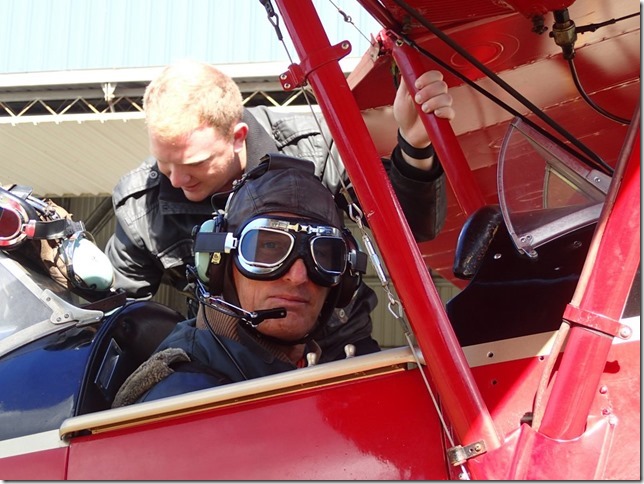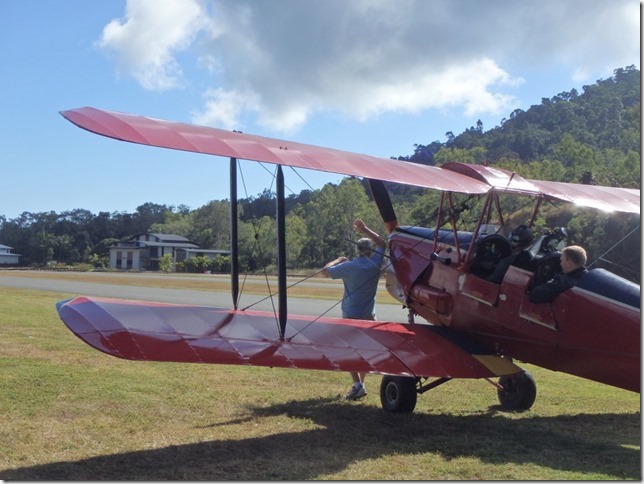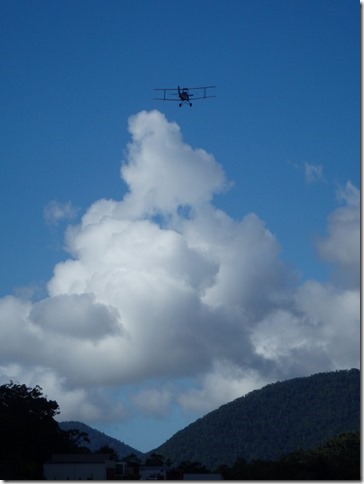Biggles

VulcanSpirit
Richard & Alison Brunstrom
Mon 1 Sep 2014 12:01
|
Your correspondent has sadly reached the age of 60 years. He wished this
milestone to pass without significant notice, but discovered on waking on the
morning of 1 August that the other half of the crew of the Vulcan Spirit had
other ideas and had booked a flight in an open biplane for that morning – an
activity in which he had previously shown no discernible interest. But a booking
had been made and had to be honoured.
The Tiger Moth was first flown in 1931. This particular example was
manufactured in the UK in 1940 and assembled in Australia that year, for use as
a pilot trainer for the RAAF. It was a very popular trainer as it requires some
skill to fly, and thus weeded out the weaker students. Good to know, eh?
Here is the temporarily augmented crew of Vulcan Spirit with the hapless
victim in the centre surrounded by filthy schemers:
 Your hero,nearly ready for the off:
 As you can see the plane is largely held together by bits of string, and
the wings and fuselage are fabric through which one could easily poke a careless
finger. There are no electrics (the microphone seen above transpired to be a
dummy) at all, necessitating a hand start – a hazardous undertaking best left to
the owner, seen in action below:
 Up up and away:
 An hour’s flight around the Whitsunday Islands ensued with quite
exceptional views from the open cockpit (stupidly no camera was taken on board),
followed by the optional extra of acrobatics (if you’re going to do it, do it
properly) over Airlie. Three loops and two barrel rolls were performed. This was
not in the least frightening, but blood pressure in the head increases
uncomfortably - a feeling which persists for some time afterwards. Then came the
landing, by far the most exciting part of the trip. The pilot sits in the rear
and cannot see straight ahead. He therefore tilts the aircraft to one side and
flies slightly sideways towards the runway so that he can see it, only
straightening up at the very last moment before touchdown. The victim cannot
communicate with the pilot and is not briefed about procedure beforehand, and is
left guessing as to whether the aircraft is going to land on the runway, or
sideways across it, or on one wing. Interesting, but once is enough. At least
that’s sixty over with.
Onboard video was taken. If I can work out how to stick the aerobatics on
U-tube I will, when time and a good internet connection
permits. |